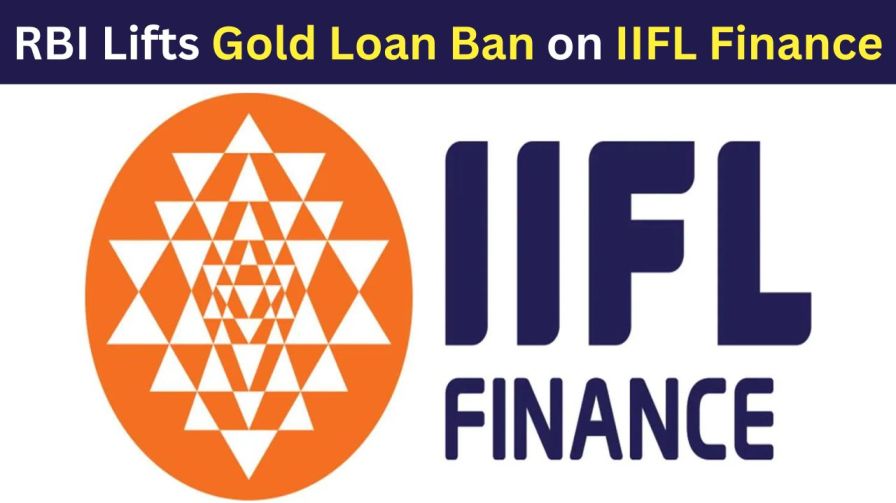In a significant move for IIFL Finance Ltd, the Reserve Bank of India (RBI) has officially lifted the restrictions placed on its gold loan operations earlier in the year. This marks a key development for the financial services firm, as it can now resume the sanctioning, disbursal, assignment, securitisation, and sale of gold loans. The decision by the RBI, announced in a communication on September 19, 2024, comes after months of scrutiny and a regulatory review of the company’s business practices.
A Major Reversal for IIFL Finance
The removal of the restrictions has undoubtedly provided some much-needed relief for IIFL Finance, which has faced operational setbacks since the RBI imposed the suspension in March 2024. The RBI had initially imposed the ban on IIFL’s gold loan business due to “material supervisory concerns,” specifically regarding serious deviations in the company’s handling of its gold loan portfolio. These concerns revolved around issues with the assaying and certifying of the purity and net weight of the gold at the time of both loan sanctioning and auctions after defaults.
Despite the setback in March, the company has been working diligently to address these concerns. In a statement following the RBI’s announcement, IIFL Finance reiterated its commitment to upholding the highest standards of compliance. “The Company is committed to upholding the highest standards of compliance and will continue to ensure that the remedial actions taken are sustained,” the firm stated, reflecting its resolve to regain the trust of regulators and investors.
Timeline of Events Leading to the RBI’s Decision
The restrictions on IIFL Finance’s gold loan business came as a result of a series of inspections and audits carried out by the RBI. On March 4, 2024, the RBI ordered the company to halt its new gold-backed lending operations. This decision followed an inspection of IIFL’s financial status for the fiscal year ending March 31, 2023, during which the central bank flagged discrepancies in the handling of its gold-backed loans.
The concerns raised by the RBI were not taken lightly by the financial world, as they led to IIFL Finance’s downgrading by several credit rating agencies. Domestic agencies such as ICRA Ltd, Crisil Ltd, and Care Ratings Ltd placed IIFL on a “rating watch” with negative or developing implications. The international credit ratings agency, Fitch Ratings, also revised its outlook on the company, placing its B+ rating on negative watch.
At the time, the suspension took a toll on IIFL Finance’s operational scale, with reports indicating a decline in the company’s workforce. The number of employees across its gold loan branches dropped from approximately 15,000 in March 2024 to about 12,000 by June 2024. Additionally, the company’s assets under management (AUM) in the gold loan sector took a significant hit, plunging by more than 50%, falling to ₹12,162 crore as of August 5, 2024.
Financial Impact of the Restrictions
The RBI’s supervisory action has undoubtedly had far-reaching effects on IIFL Finance’s financial position. The company’s stock was hit hard following the announcement of the restrictions, with its shares on the National Stock Exchange (NSE) closing the day down by 6%, at ₹497 each. The steep decline in stock price reflected investor concerns about the company’s future in the wake of the RBI-imposed suspension.
Moreover, the company saw a reduction in its overall business activity due to the halt on new gold loans, affecting its revenue streams. However, in the months since the restrictions were imposed, IIFL Finance has worked hard to restore stability to its operations. The firm has focused on internal audits, restructuring its loan portfolios, and implementing tighter compliance measures to address the issues raised by the RBI.
Remedial Actions and Company’s Recovery Plan
IIFL Finance has been proactive in its response to the concerns raised by the RBI. The company initiated a series of corrective measures aimed at improving its loan assessment processes and gold purity certification protocols. It also undertook an internal review of its gold loan operations, aligning its practices with industry standards and regulatory requirements.
In addition to these measures, IIFL Finance worked closely with external auditors and industry experts to ensure that all necessary steps were taken to address the issues highlighted by the RBI. The company’s management has remained confident in its ability to recover and return to a position of strength in the gold loan market.
“We have taken substantial corrective actions and are focused on maintaining our commitment to regulatory compliance. We are confident that these measures will safeguard our operations moving forward,” said an IIFL Finance spokesperson.
A Return to Gold Loan Operations
With the restrictions now lifted, IIFL Finance can resume its gold loan operations, which constitute a major portion of the company’s overall business. The firm’s gold loan business has long been an important source of revenue, providing loans to customers who use gold as collateral. With the resumption of lending activities, IIFL Finance is expected to gradually rebuild its business in the coming months.
Analysts believe that the lifting of the restrictions will positively impact IIFL Finance’s stock price, although caution remains as investors and regulators continue to monitor the company’s progress. As the company recommences its gold loan business, it will need to prove that it has effectively addressed the issues identified by the RBI and that its operations are in full compliance with regulatory guidelines.
Implications for the Gold Loan Industry
The case of IIFL Finance highlights the increasing scrutiny faced by financial institutions in the gold loan sector. The RBI’s regulatory action sends a strong message to other players in the industry about the importance of adhering to stringent compliance standards. As India’s gold loan market continues to grow, financial firms will need to ensure that they meet all necessary regulations to avoid facing similar disruptions.
The gold loan market in India is highly competitive, with many players vying for market share. However, the sector has also been facing challenges in recent years, including concerns over gold purity, loan defaults, and the need for better technological integration in loan assessment. The actions taken by IIFL Finance serve as a reminder of the need for strict compliance and transparency in the lending process, particularly when it comes to asset-backed lending.
Future Outlook for IIFL Finance
Looking ahead, IIFL Finance’s future will depend on its ability to navigate regulatory challenges while maintaining strong business performance. With the lifting of the restrictions, the company is likely to focus on rebuilding its gold loan portfolio and regaining the trust of investors and customers.
While the road to recovery may be long, the firm’s commitment to corrective actions and compliance could help position it for success in the future. As one of India’s leading financial services companies, IIFL Finance is well-placed to capitalize on the growing demand for gold-backed loans, provided it continues to uphold the highest standards of regulatory compliance.
In conclusion, the lifting of the RBI’s restrictions marks a turning point for IIFL Finance. The company can now focus on rebuilding its gold loan business and recovering from the challenges of the past year. While the firm’s journey to full recovery will require continued effort and vigilance, the lifting of the ban represents a positive step forward for both the company and its investors.
Table: Impact of RBI’s Restrictions on IIFL Finance’s Gold Loan Business (2024)
| Category | Before Restrictions | After Restrictions | Change |
| Employee Count | 15,000 | 12,000 | -20% |
| Assets Under Management (AUM) | ₹24,500 crore | ₹12,162 crore | -50% |
| Stock Price (NSE) | ₹530 | ₹497 | -6% |
| Rating Outlook (Fitch) | Stable | Negative Watch | Deteriorated |
This table offers a snapshot of the financial and operational impacts faced by IIFL Finance following the RBI’s restrictions in March 2024, highlighting the company’s challenges during this period of regulatory scrutiny.





